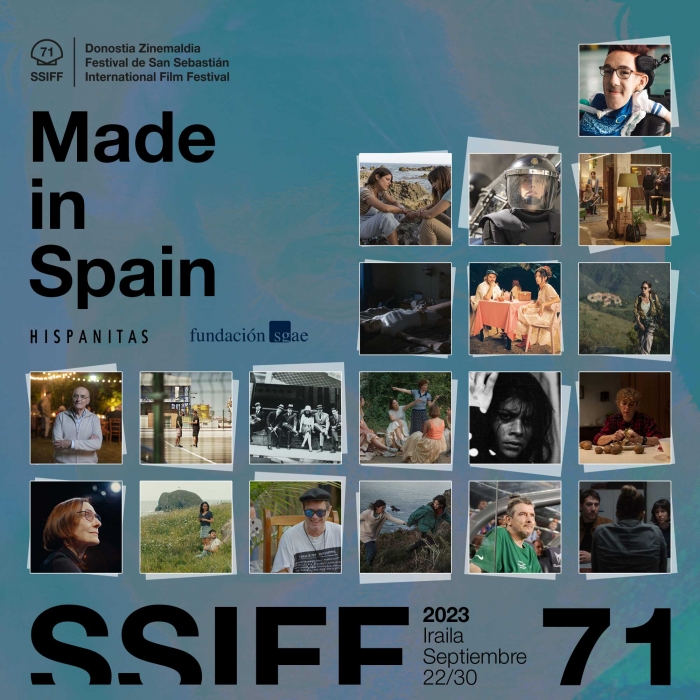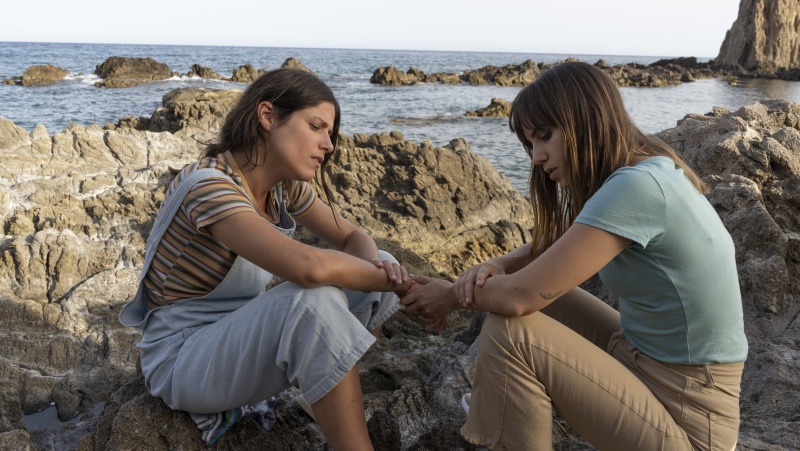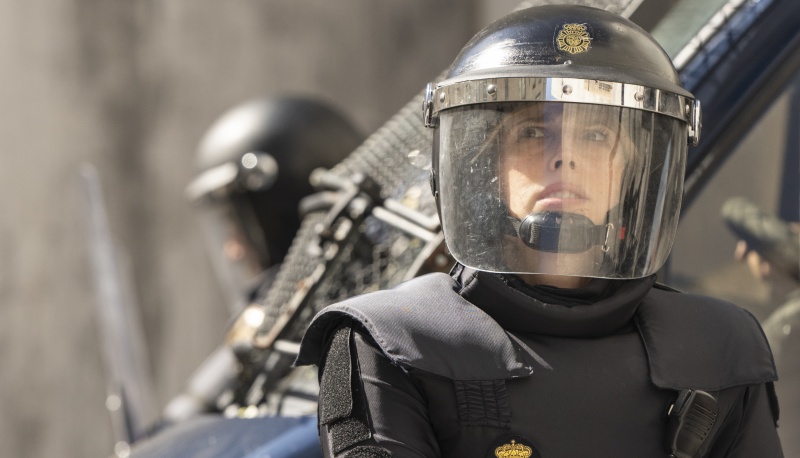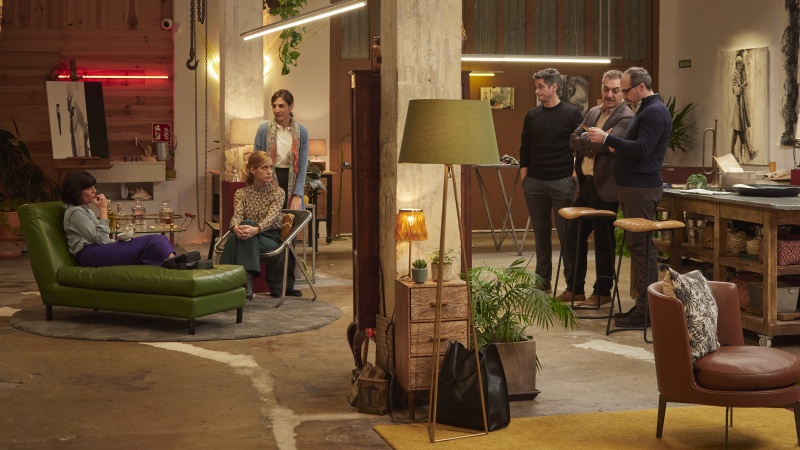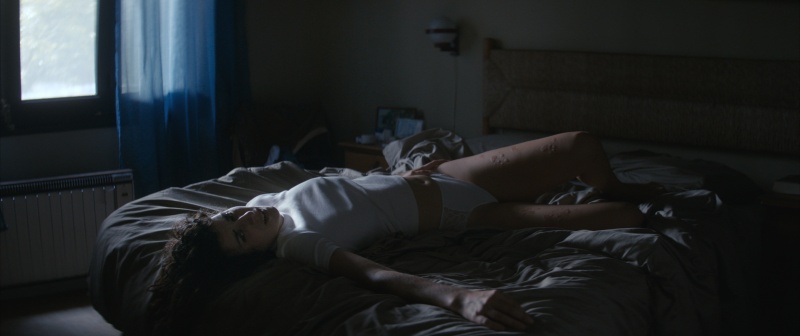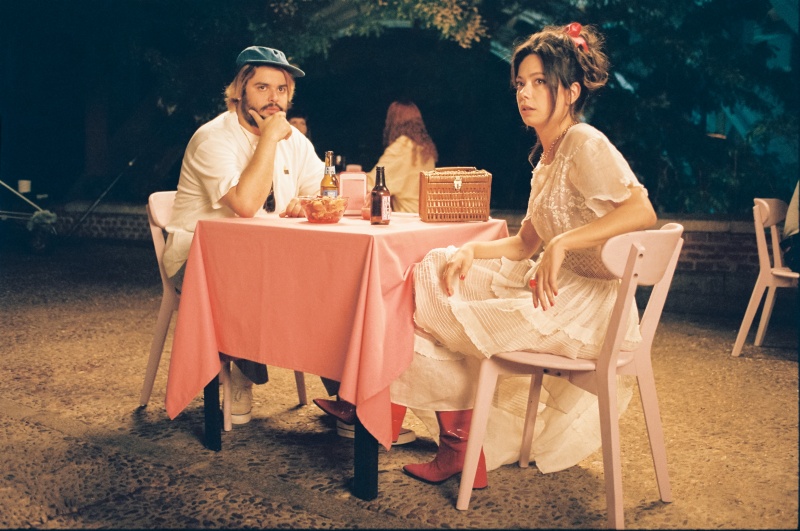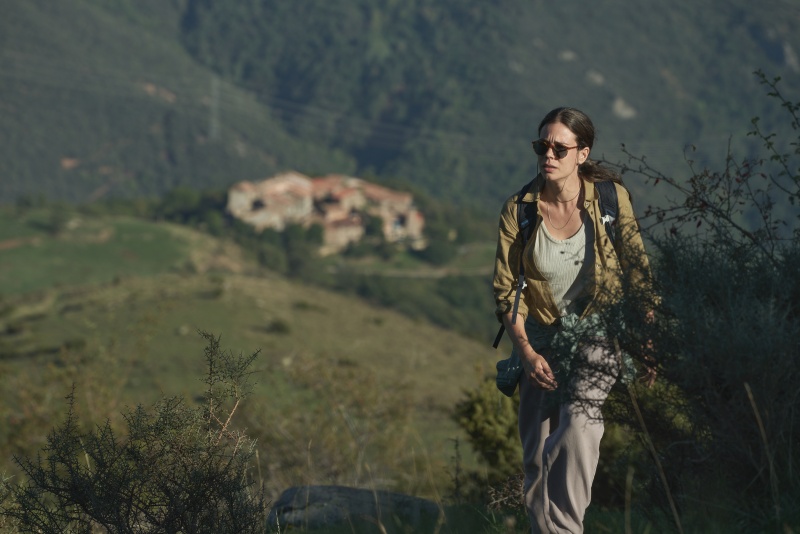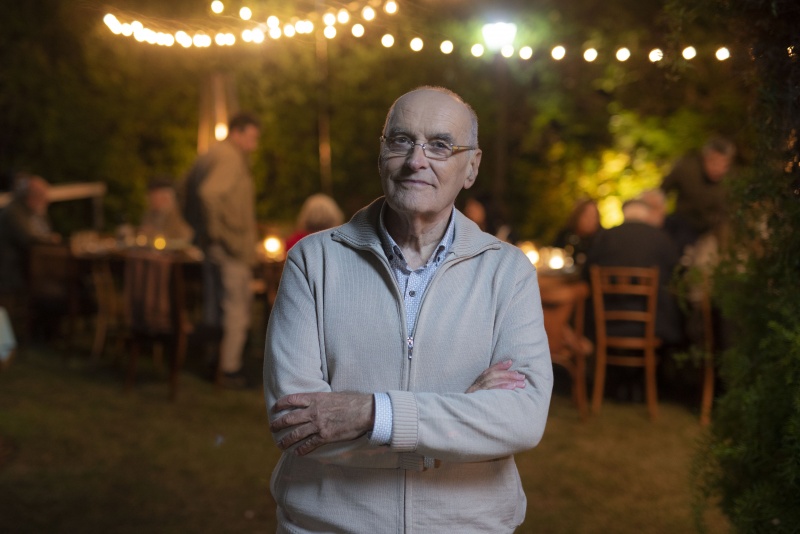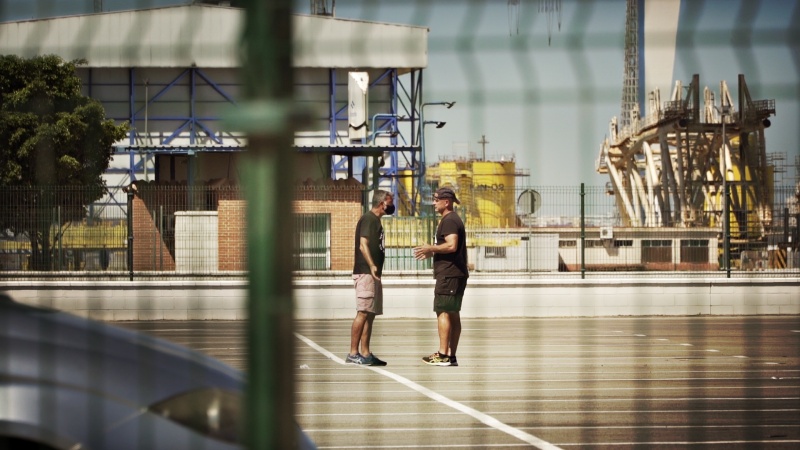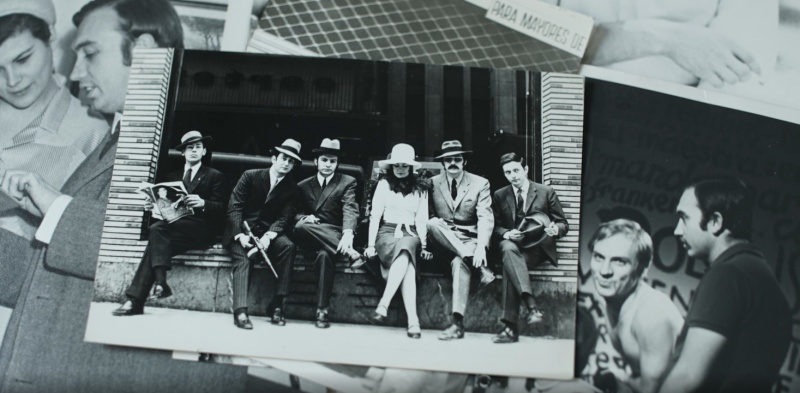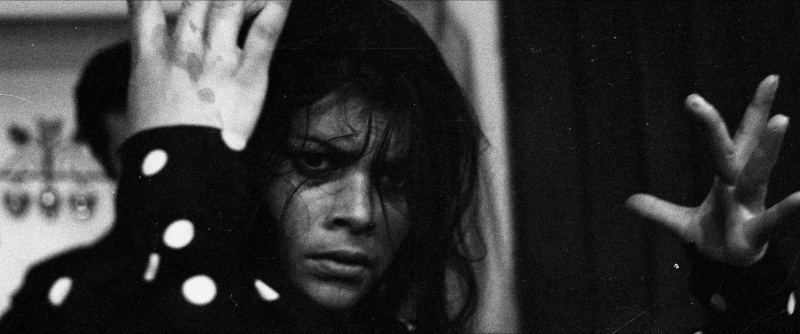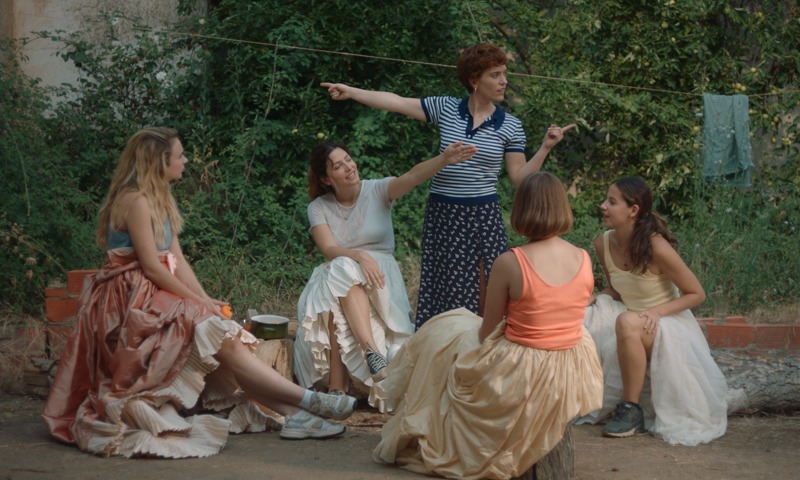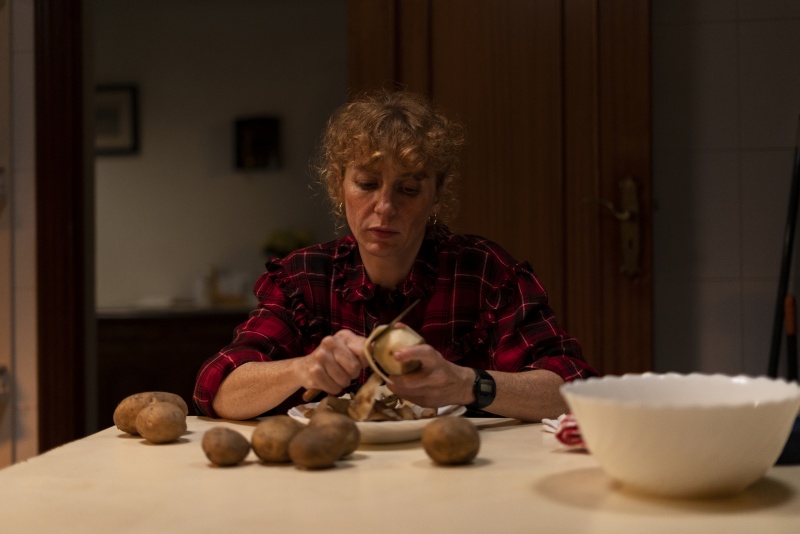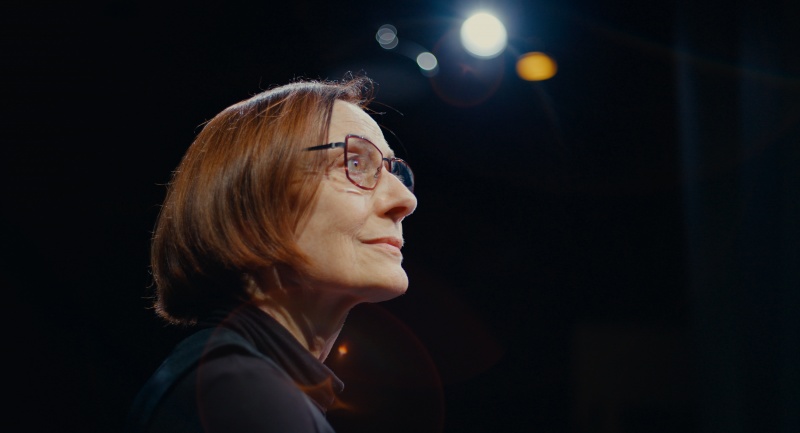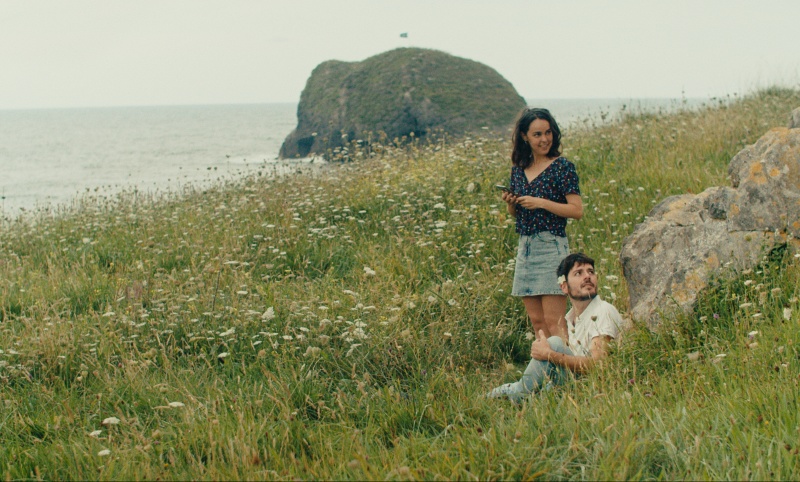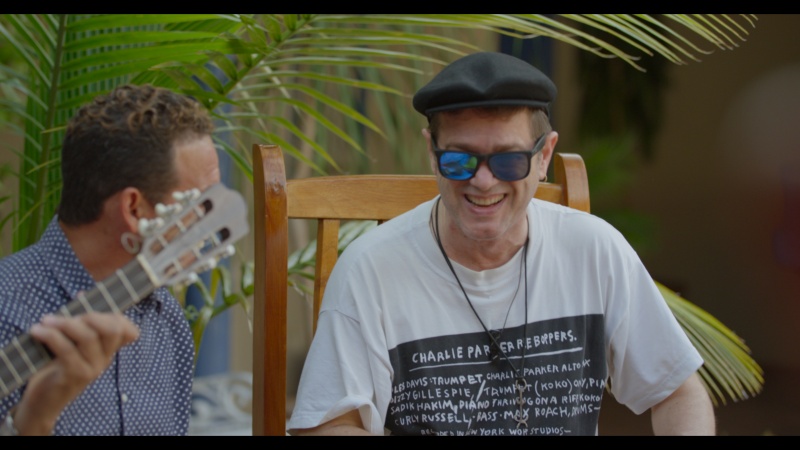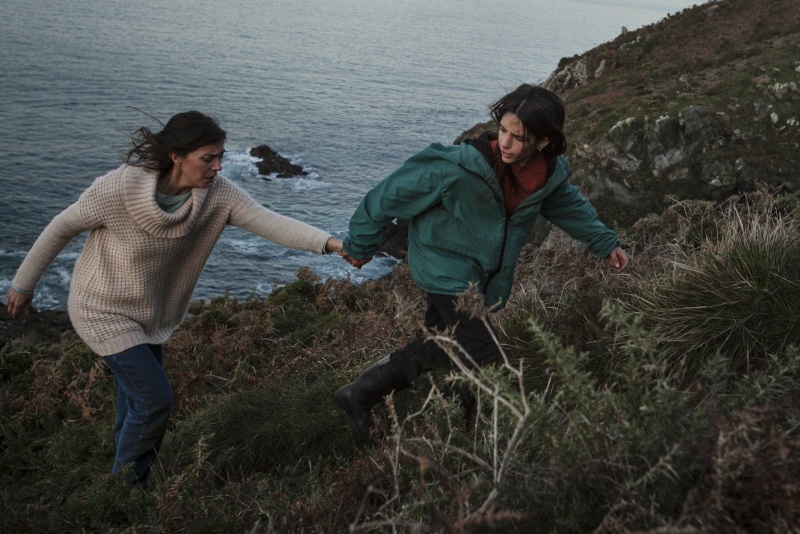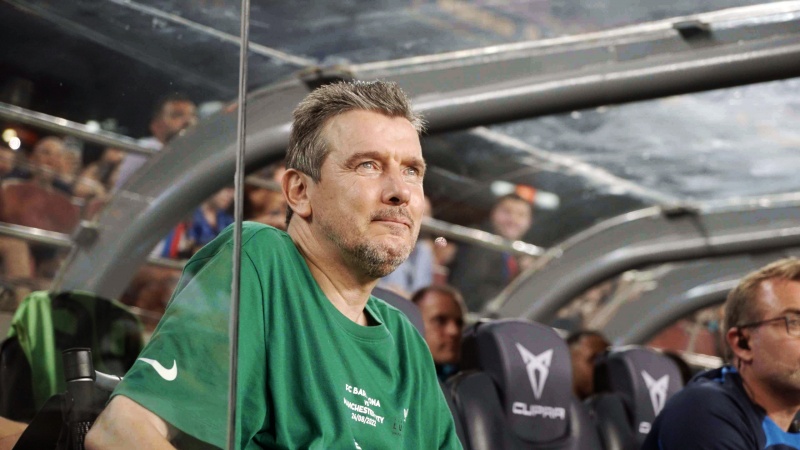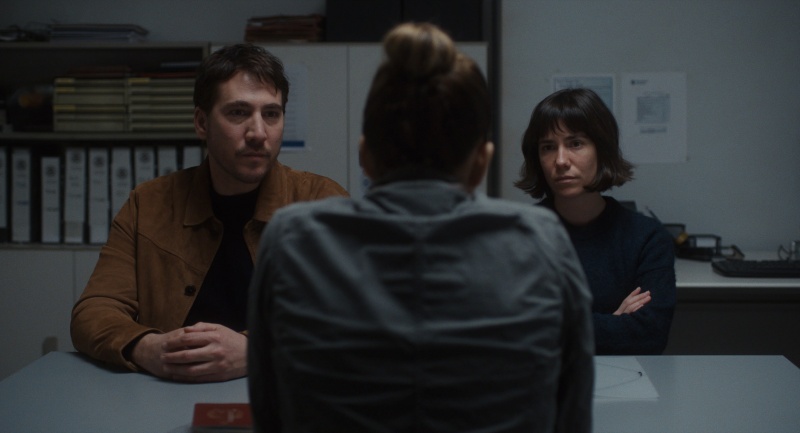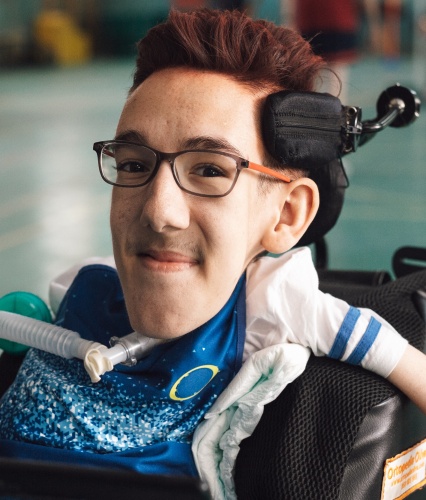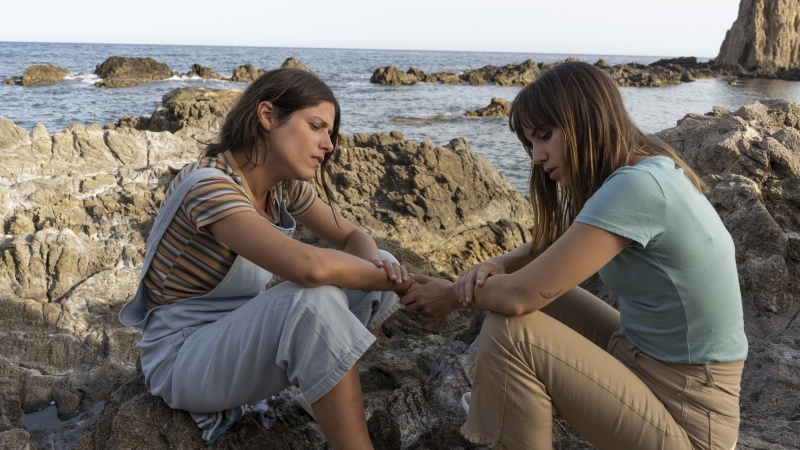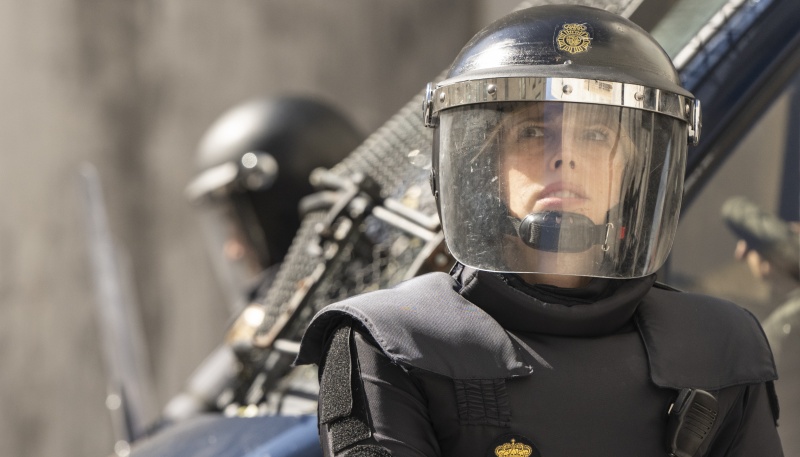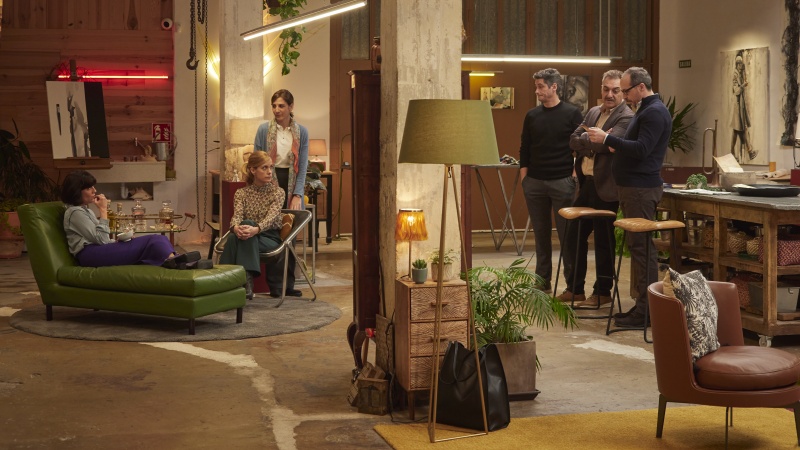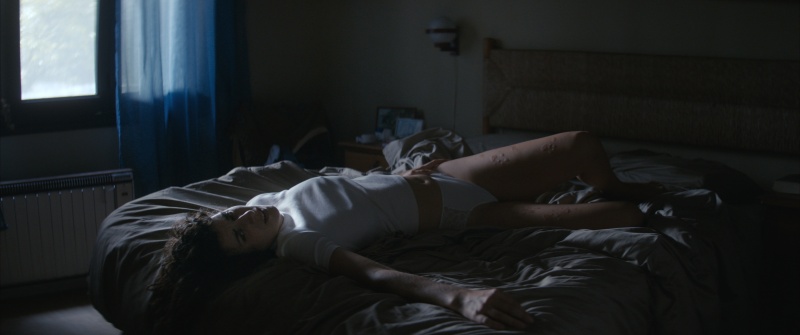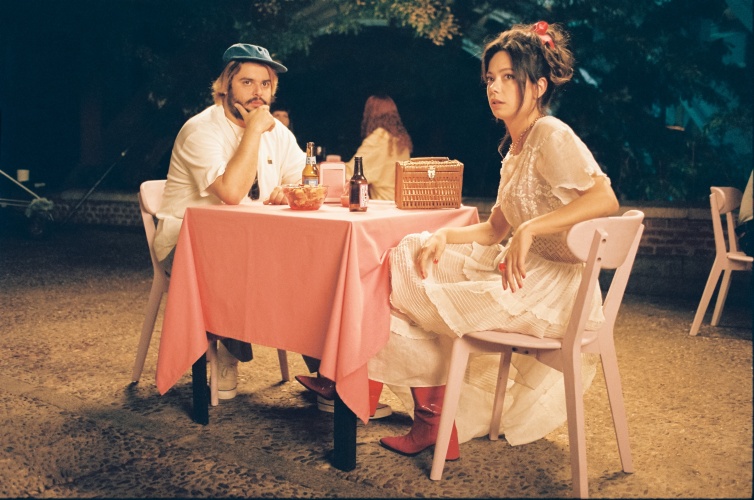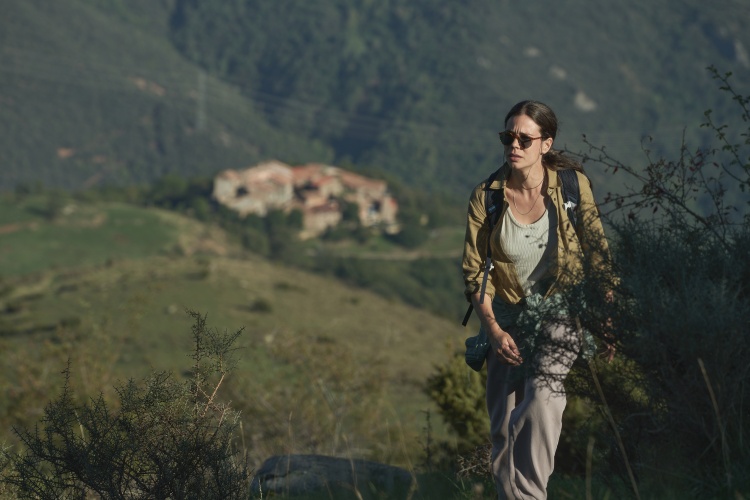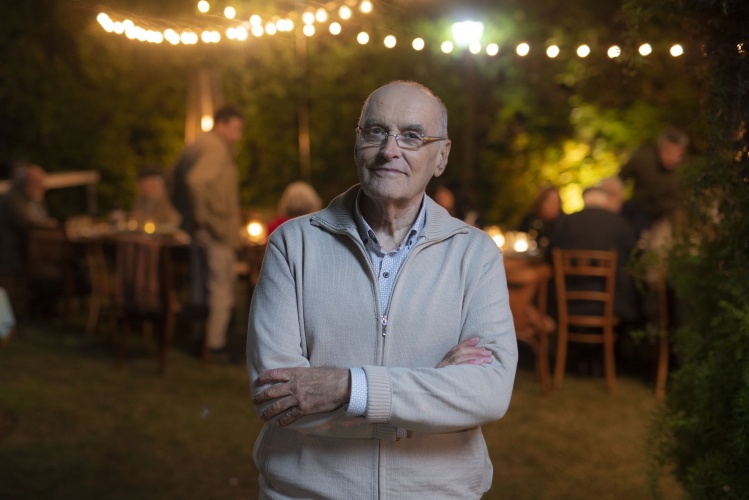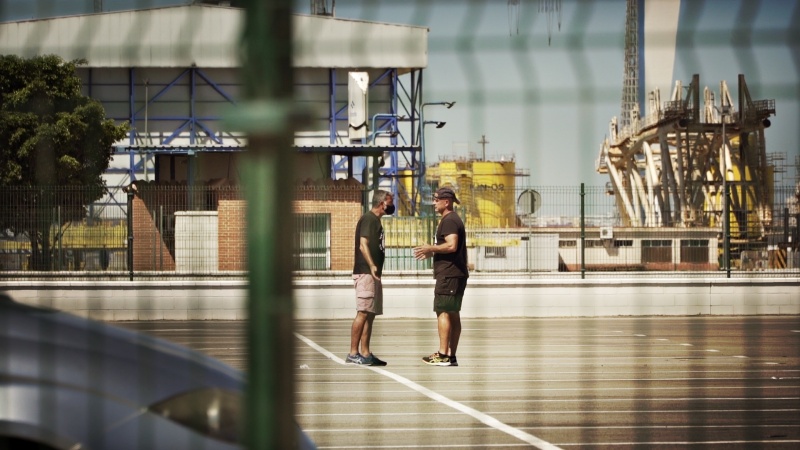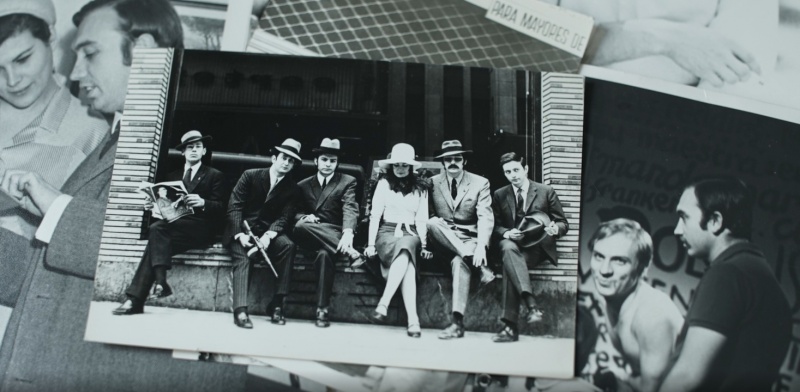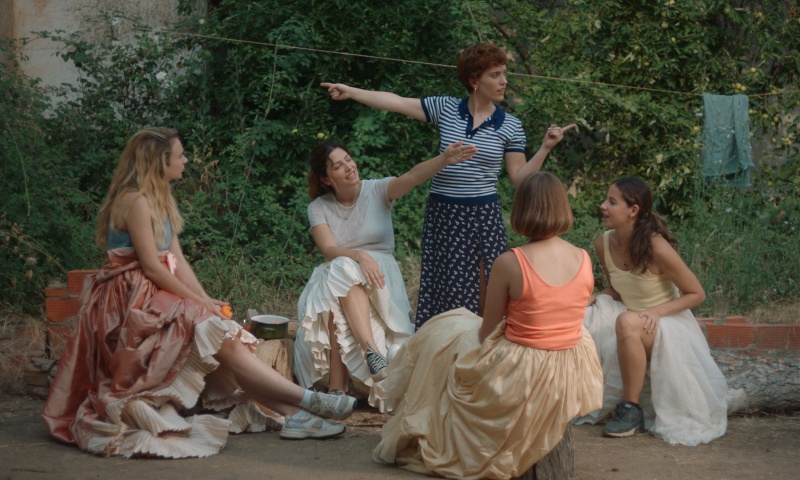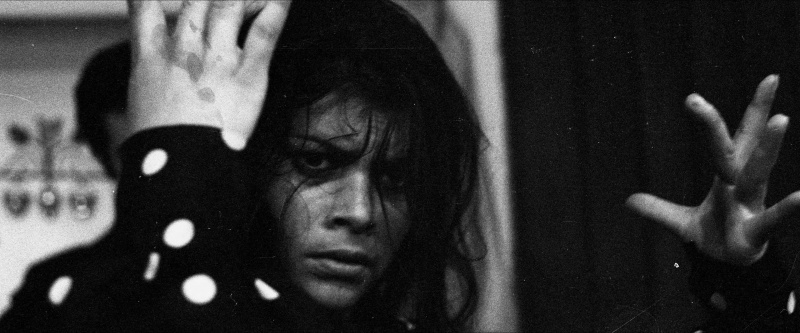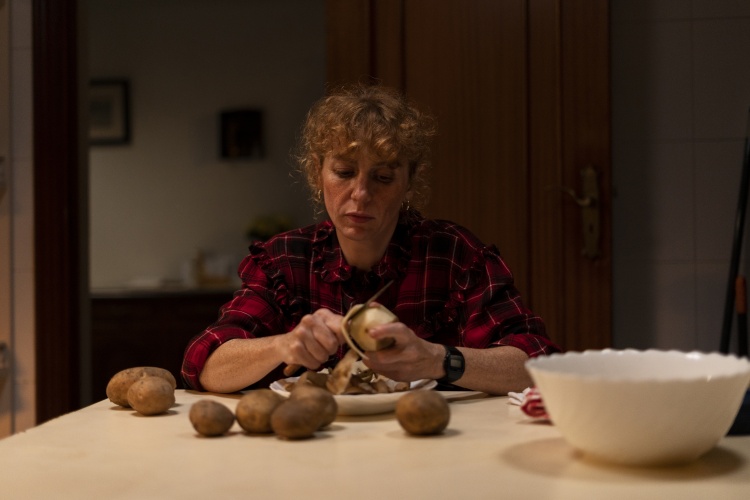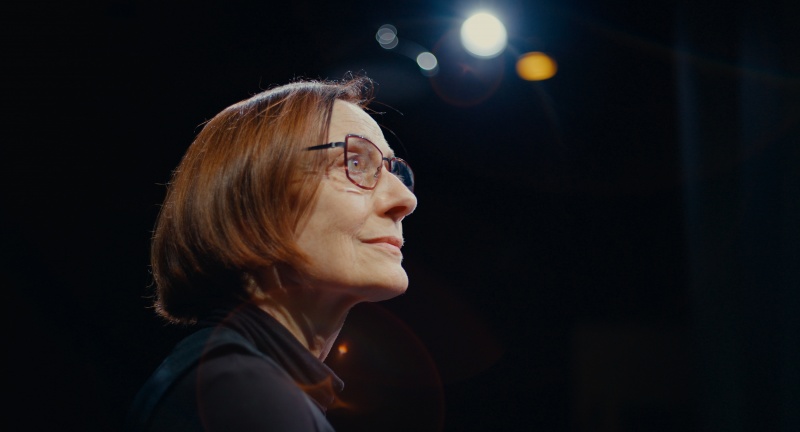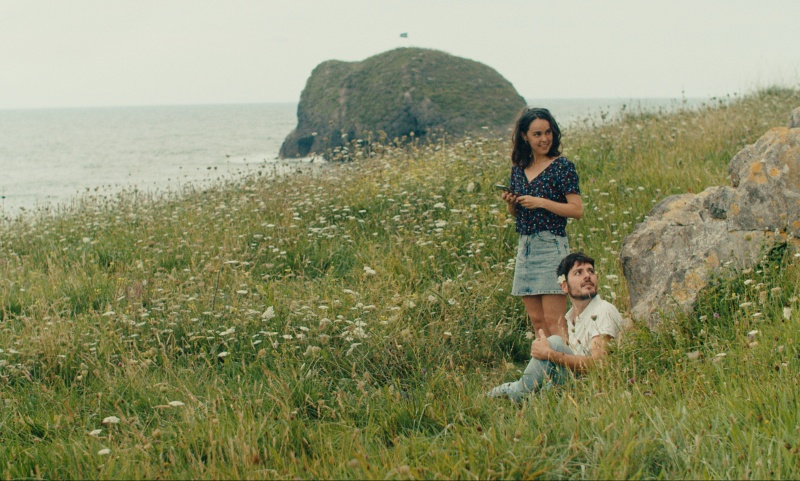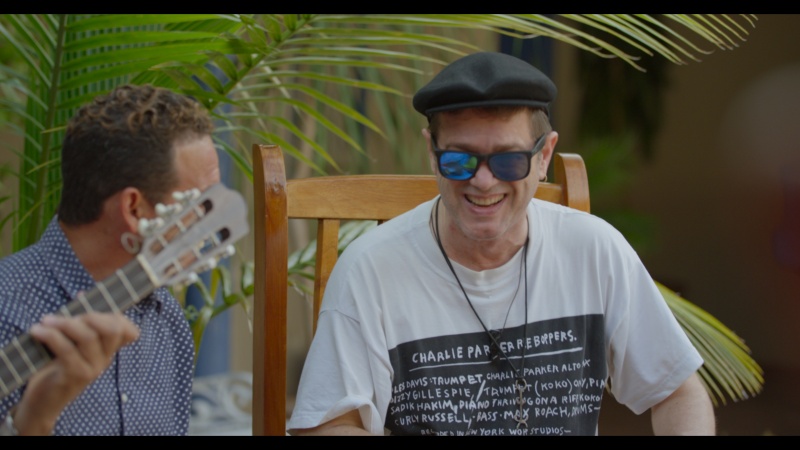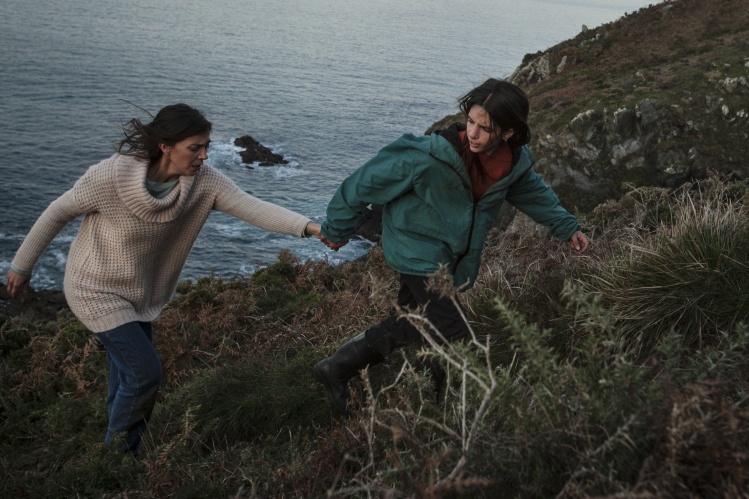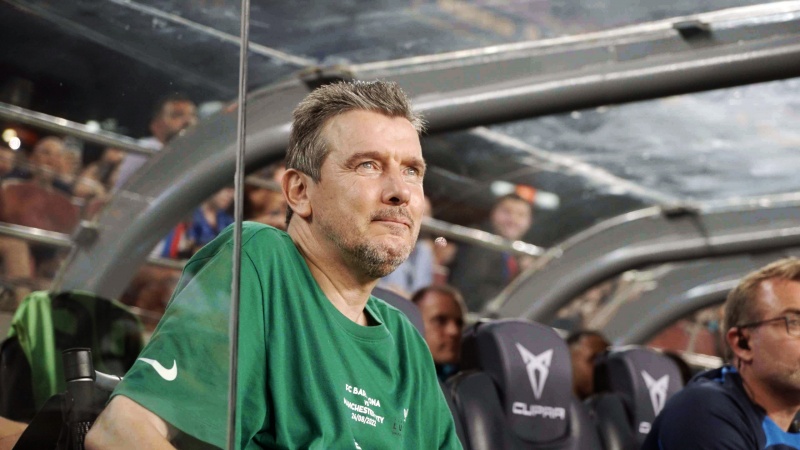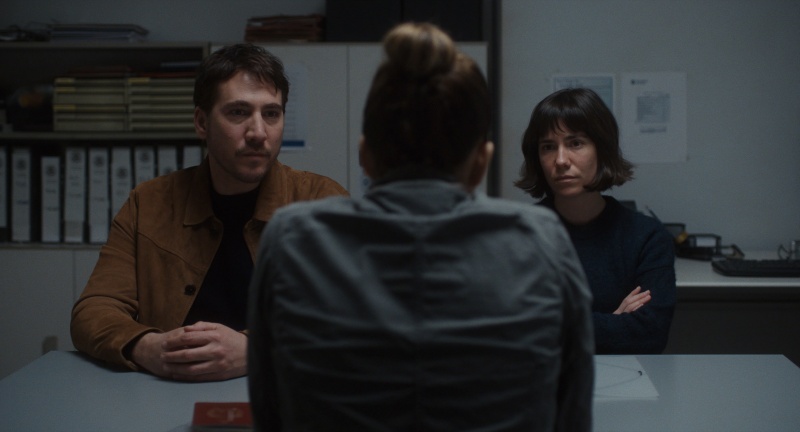Other of the films programmed to screen include those by Itsaso Arana, Gerardo Herrero, Diego Llorente, Elena Martín Gimeno, Elena Trapé and Miguel Ángel Vivas
A total of 19 features will make up Made in Spain, San Sebastian Festival’s non-competitive section showcasing a selection of the year’s Spanish films. At the 71st edition, to run from 22-30 September, five of these titles will be world premieres, while the remainder will be filmes previously screened at other international festivals or recently released. Made in Spain is sponsored by Hispanitas and has the collaboration of Fundación SGAE.
Álvaro Longoria (Santander, 1968), the Goya-winning director and producer for his documentary Hijos de las nubes, la última colonia / Sons of the Cloud, the Last Colony (Made in Spain, 2012), will close the section with another world premiere, La vida de Brianeitor, about an adolescent whose physical disability has done nothing to stop him from becoming one of today’s greatest gamers. Longoria, who has produced some 50 feature films, is a regular at the Festival, where he has also shown works as a director, such as the Goya-nominated The Propaganda Game (Zabaltegi-Tabakalera, 2015), Ni distintos ni diferentes, Campeones (Velodrome, 2018) and Tequila. Sexo, drogas y rock and roll / Tequila. Sex, Drugs and Rock & Roll (Made in Spain, 2022).
Having directed several short films –one of which, Estocolmo (2010), participated in Nest– Juan Francisco Viruega (Almería. 1982) will show his feature debut Amanece, which will have its world premiere at San Sebastian. The film narrates the ordeals of two sisters as they accompany their sick mother in the last days of her life.
Premiered out of competition at Málaga Festival, Asedio is a thriller by Miguel Ángel Vivas (Seville, 1974), who participated in the first edition of Nest with his debut short El hombre del saco / The Bogeyman (2002). After directing films including Secuestrados (2010), Inside (2016) and Tu hijo (2018), this latest film comes with a cast including Natalia de Molina, Francisco Reyes and Alejandro Casaseca.
Malena Alterio, Alexandra Jiménez, Fele Martínez, Antonio Pagudo, Eva Ugarte and Juan Carlos Vellido play the lead roles in Bajo terapia / Under Therapy, latest work from the filmmaker Gerardo Herrero (Madrid, 1953), who won the Special Jury Prize in Málaga with this film about three couples who go for group therapy. Herrero, who was a member of the official jury in 1999, has participated in the Festival with numerous projects, such as Frontera sur (Official Selection, 1998) and Silencio en la nieve / Frozen Silence (Made in Spain, 2012).
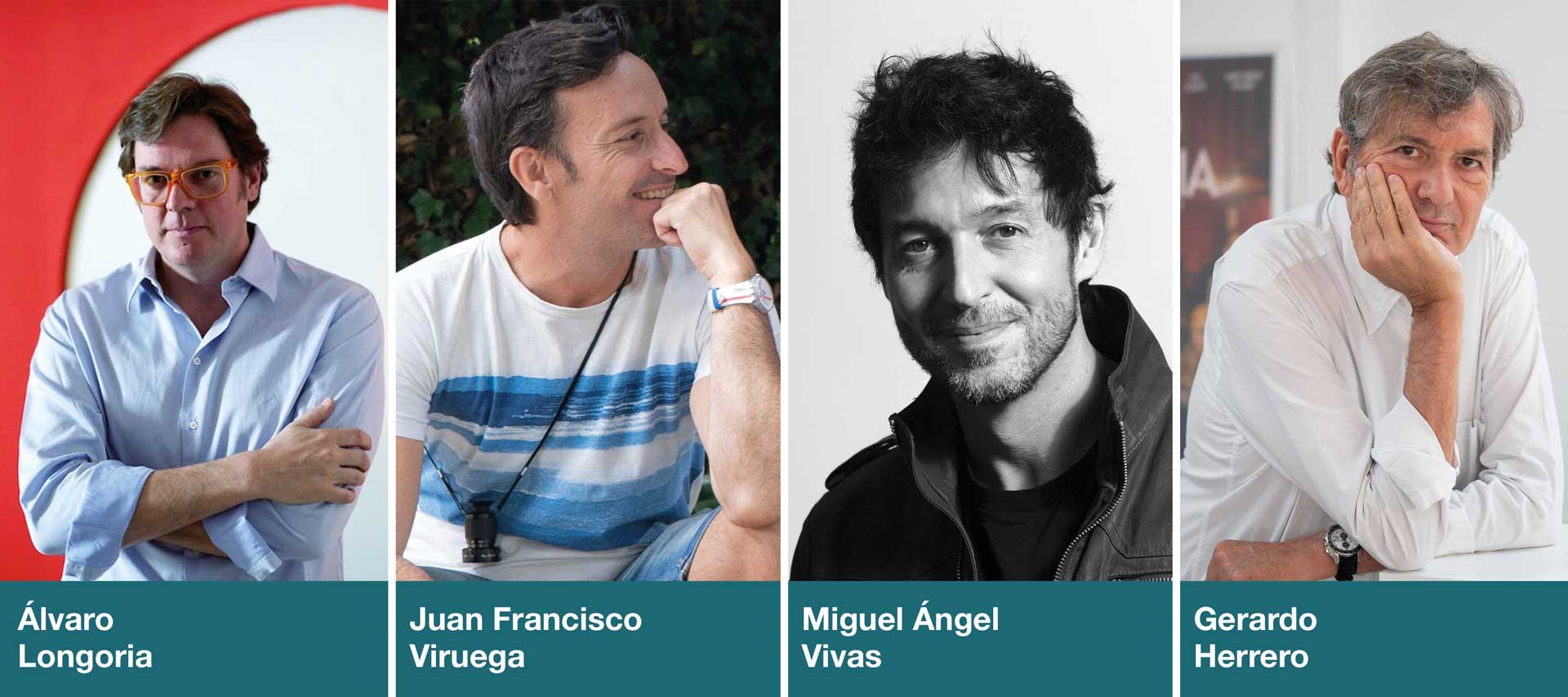
Creatura, which participated in the Ikusmira Berriak residency programme at its project stage, premiered at the Quinzaine des Cinéastes in Cannes, where it won the Europe Cinemas Award for Best European Feature. Its director, Elena Martín Gimeno (Barcelona, 1992), follows a young girl anxious to feel comfortable with her own body. This is the second feature film from its author, who debuted with Júlia ist (Made in Spain, 2017).
The Burnin’ Percebes collective, formed by members Juan González (Oviedo, 1991) and Fernando Martínez (Barcelona, 1991), will show El fantástico caso del Golem / The Fantastic Golem Affairs, a labyrinthian film with a cast starring Brays Efe, Bruna Cusí, Javier Botet, Anna Castillo, Luis Tosar and Roberto Álamo. The Málaga Festival hosted the premiere of the latest work from the makers of films including Ikea 2 (2016) and La reina de los lagartos (2020).
Also included in the Official Selection at Málaga, where it landed the Silver Biznaga for Best Screenplay, Els encantats stars Laia Costa as a mother faced with her daughter’s absence for the first time. This is the third film from Elena Trapé (Barcelona, 1976), who bagged a special mention in New Directors with her debut movie, Blog (2010).
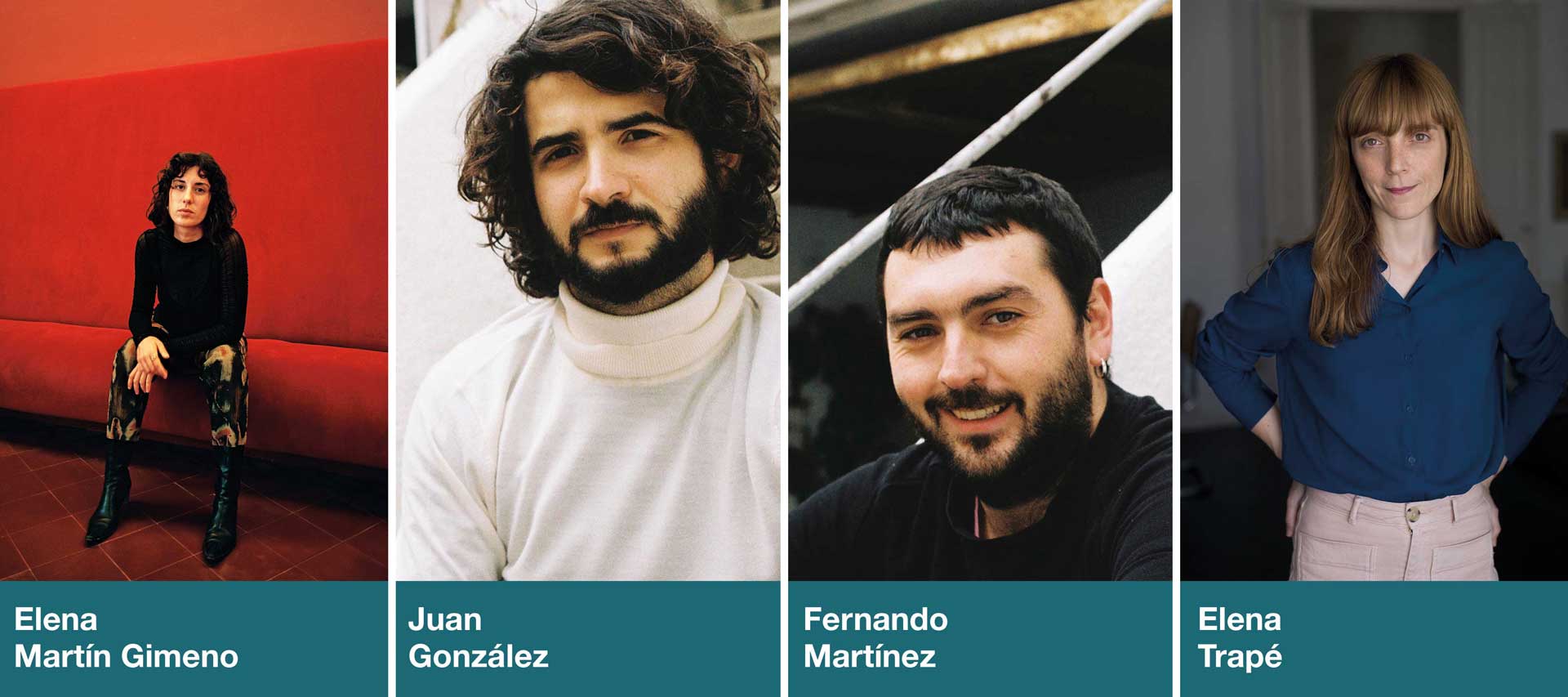
The Málaga Festival programmed a special screening to premiere Hay una puerta ahí, a non-fiction from siblings Juan (Montevideo, Uruguay. 1985) and Facundo Ponce de León (Montevideo, Uruguay. 1978), portraying the friendship between two men as one helps the other to die.
Made in Spain will also include the world premiere of Hormigas perplejas / Perplexed Ants, depicting a human landscape of men and women workers as they try to prevent the fall of their industry. This is the latest non-fiction work from Mercedes Moncada Rodríguez (Seville, 1972), author of documentaries including La pasión de María Elena (2003), El inmortal / The Immortal (Horizontes Selection, 2005), Palabras mágicas para romper un encantamiento / Magic Words (Breaking a Spell) Zabaltegi Specials, 2012) and Mi querida España (Zabaltegi, 2015).
Screened in a special showing at Málaga Festival, La memoria del cine: una película sobre Fernando Méndez-Leite / The Memory of Cinema: A Film about Fernando Méndez-Leite is a documentary from Moisés Salama (Melilla, 1953) about the critic, producer and currently President of Spain’s Academy of Cinematographic Arts and Science.
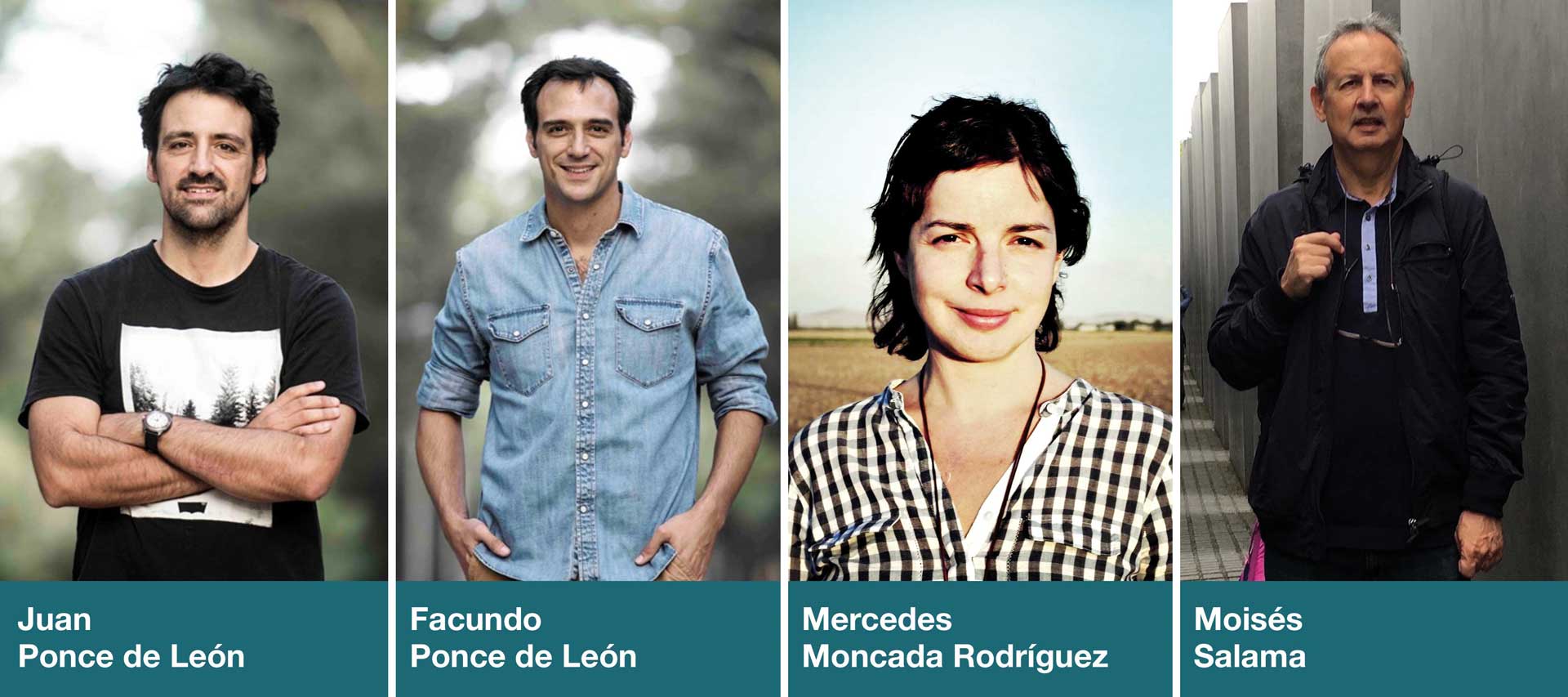
The Thessaloniki Documentary Film Festival provided the setting for the premiere of La Singla, by Paloma Zapata (Murcia, 1979), which went on to compete at Málaga. The author of films such as Peret: yo soy la rumba (2018) now follows the trail of a bailaora who revolutionised the flamenco world at the young age of 17, only to mysteriously disappear from the stage before turning 30.
Las chicas están bien / The Girls Are Alright, which competed at Karlovy Vary Festival, is the directorial debut from the actress Itsaso Arana (Tafalla, 1985), who has played the lead character in titles by Jonás Trueba, such as La Reconquista / The Reconquest (Official Selection, 2016), La Virgen de Agosto / The August Virgin (Made in Spain, 2019) and Tenéis que venir a verla (You Have to Come and See It,Made in Spain, 2022), whose screenplay she co-wrote. In her directorial debut she also appears in a cast featuring, among others, Barbara Lennie and Irene Escolar, bringing life to a group of women who have gathered at a country house to rehearse a play.
Álvaro Gago (Vigo, 1986) has developed his short film of the same name to bring his feature debut, Matria, premiered in the Panorama section of the Berlinale and winner in Málaga of the Silver Biznaga for Best Actress. María Vázquez plays a woman who lives in a Galician town immersed in a complicated working and personal situation.
With the project of her second feature, Las consecuencias (2021), the Spanish-Venezuelan filmmaker Claudia Pinto Emperador (Caracas, Venezuela. 1977) won the Eurimages Award at the Festival’s Europe-Latin America Co-Production Forum. In her return to San Sebastian, she will show for the first time Mientras seas tú / While You're Still You, closely following the actress Carme Elías in her “here and now” since she was diagnosed with Alzheimer’s Disease.
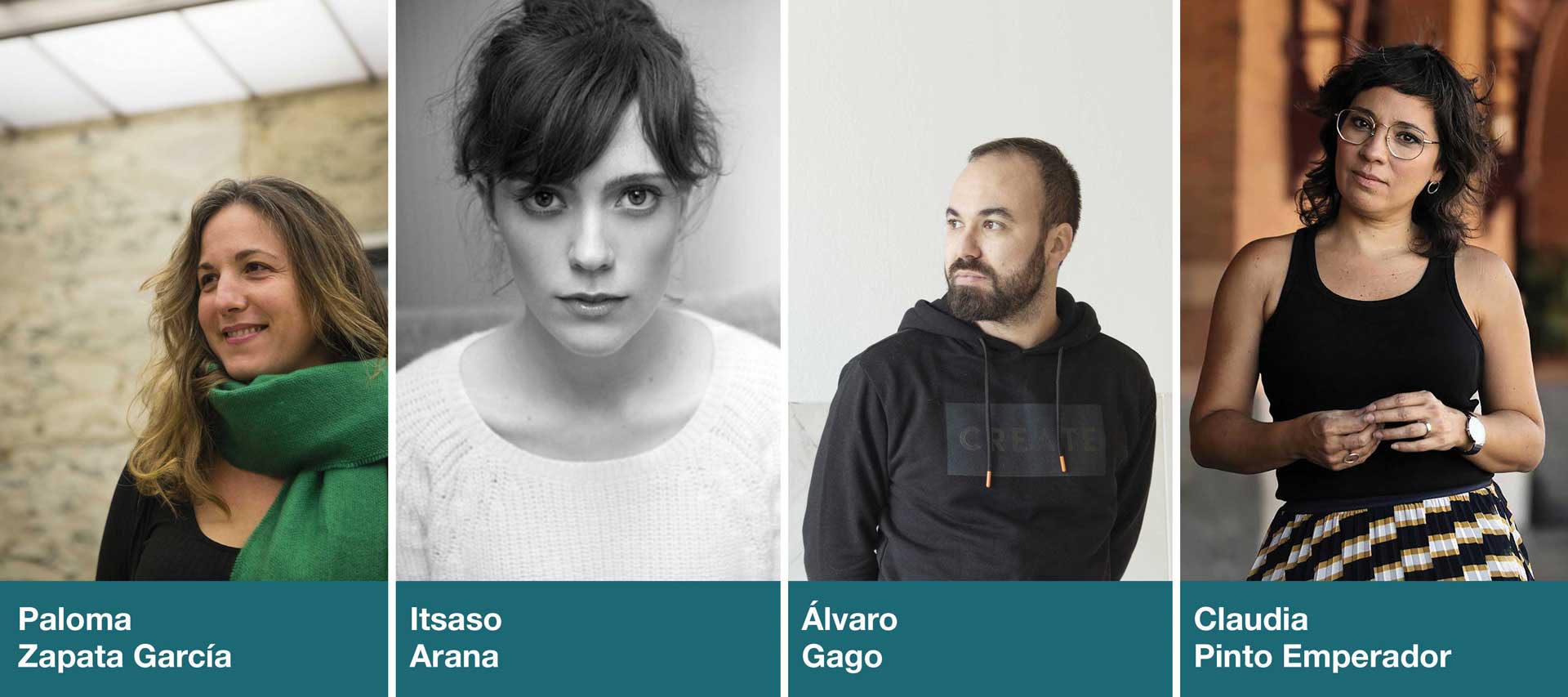
Having shown his feature films Estos días (2014) and Entrialgo (2018) at several international festivals, Diego Llorente (Pola de Siero, 1984) competed at Rotterdam Festival with his third work, Notas sobre un verano, in which a young girl comes home to Gijón to spend the summer and reunite with her family, girlfriends and old flames.
Musician Santiago Auserón returns to Cuba in Semilla del son / Seed of Son, a documentary by Juanma Betancort (Santa Cruz de Tenerife, 1975) programmed as a world premiere. The former frontman of Radio Futura, known today with the nickname Juan Perro and an eminent musicologist, stars in this mellifluous road movie on the road to Afro-Caribbean beats in the company of a fine cast of Cuban performers.
Shown in the Generation 14plus section of the Berlinale before competing at the Málaga Festival, Sica is the latest feature film from Carla Subirana (Barcelona, 1972), director of Nadar (2008), Volar (2012) and Kaninambo (2012), among others. In Sica she tells the story of a teenager whose father, a fisherman, perished on the Costa da Morte.
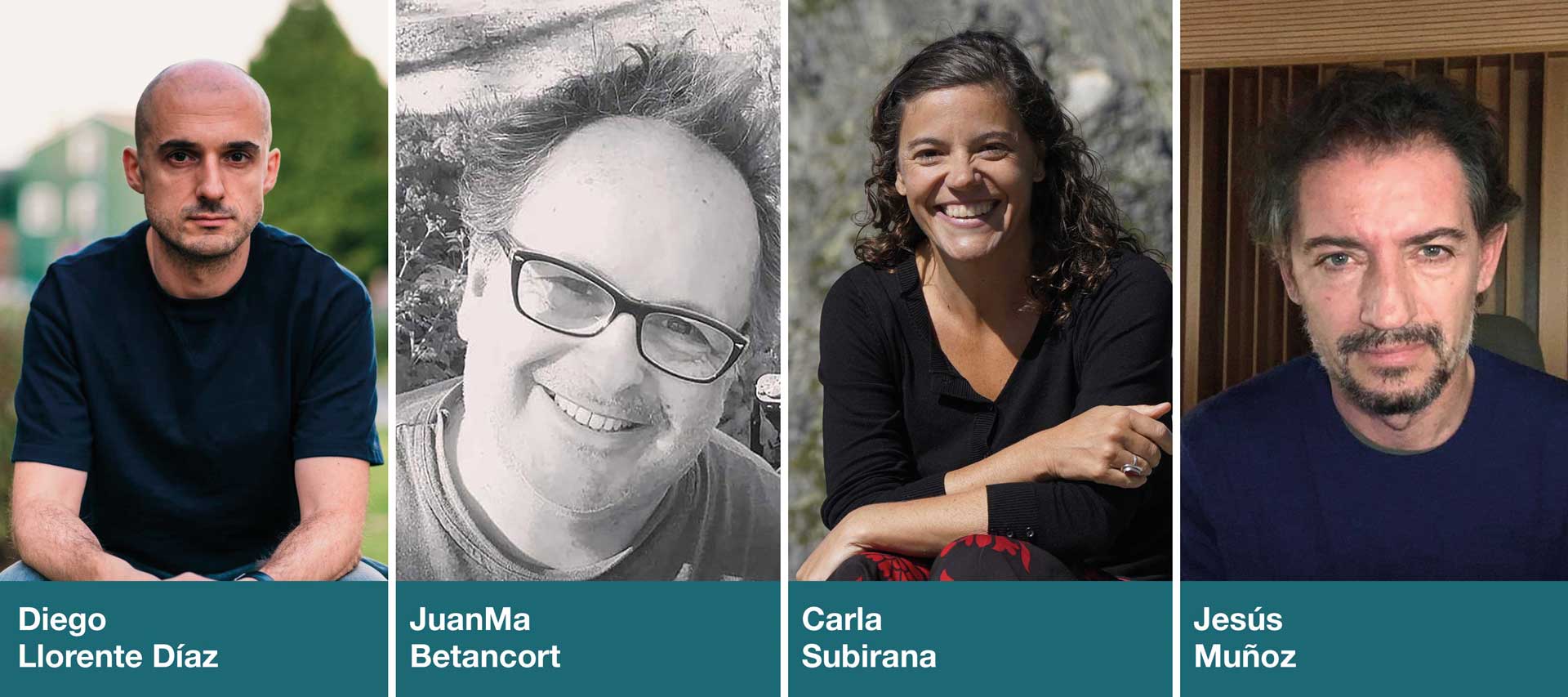
With extensive experience in sports journalism, Jesús Muñoz (Barcelona, 1971), Xavi Torres (Barcelona, 1967) and Santi Padró (Barcelona, 1961) co-direct this film premiered as a special screening in Málaga Festival. Unzué. L'últim equip del Juancar / Unzué. El último equipo de Juancar portrays the everyday life of Juan Carlos Unzué, former goalkeeper and trainer of Barça diagnosed with amyotrophic lateral sclerosis.
Alberto Ammann won the Silver Biznaga for Best Performance by a Male Actor at Málaga Festival for his role in Upon Entry (La llegada), by Alejandro Rojas (Caracas, Venezuela. 1976) and Juan Sebastián Vásquez (Caracas, Venezuela. 1981), who make their directorial debut. Ammann and Bruna Cusí play a couple who are detained on making their way to the immigration zone of New York airport.
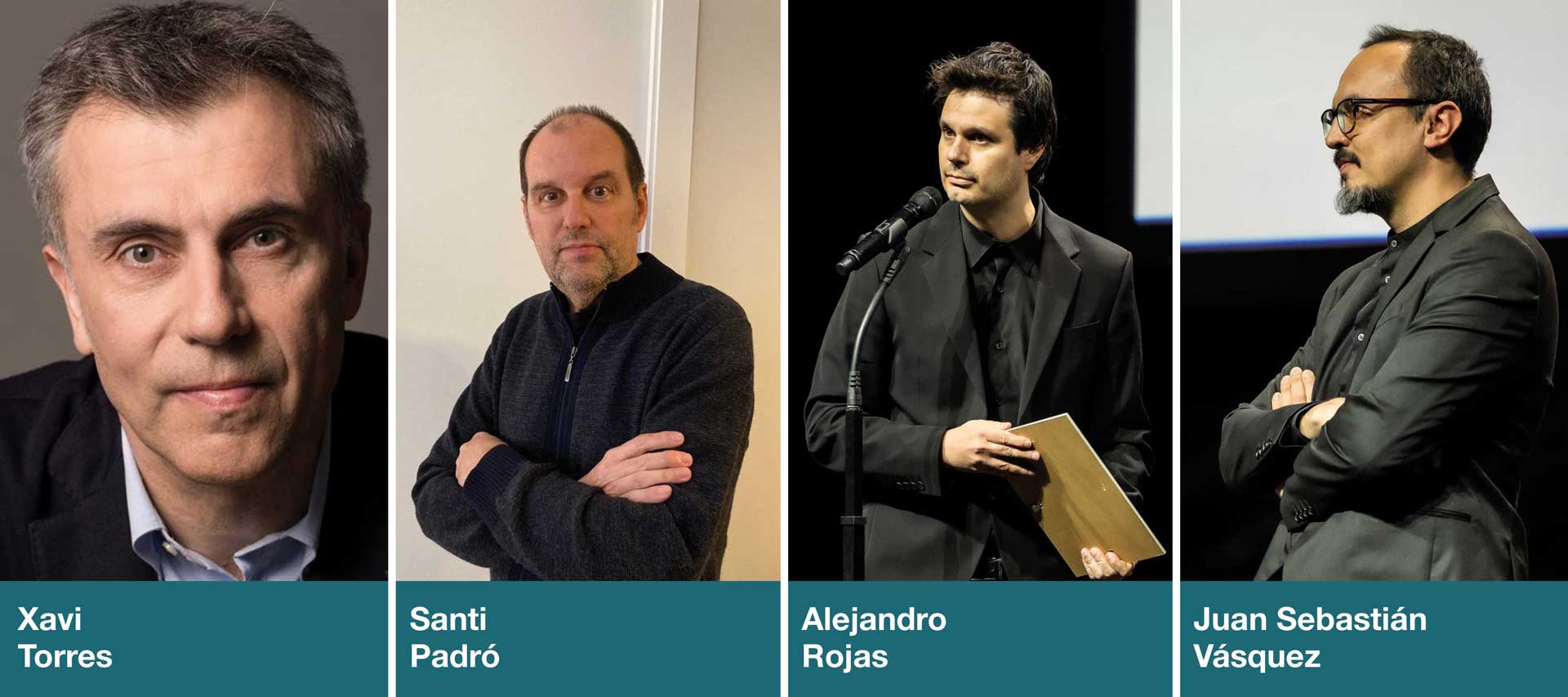
Only able to move two fingers of his hands due to having been born with degenerative muscular atrophy, Brian has become a global phenomenon thanks to social media, where he is the gamer and streamer of the moment. He has millions of followers who watch his every step and has recently made his big screen debut in the film Campeonex, with Javier Fesser. La vida de Brianeitor tells the fascinating story of overcoming the odds and how Brian became Brianeitor2002 despite his physical disability.
Alba returns to her hometown after a break-up. There she reunites with her sister Candela. The two will close their childhood wounds and breathe together once again as they accompany their sick mother in her last days, with the desert, the sea and salt as witnesses.
For Dani, being Spanish means serving his country as a member of the riot police squad, honouring his flag, enforcing the law. But during an eviction in a troubled area of Madrid, Dani uncovers a corruption ring that will make him fear for his life. His only help will lie in Nasha, a young Nigerian girl he just evicted, and her son Little. He soon realises that the system he works for is not the solution, but may always have been part of the problem.
Three couples participate in an unusual group therapy session. The psychologist has left them a series of issues that the couples will have to jointly address and analyse. The proposed mechanics prompt them all to give their opinion, argue and finally show themselves as they really are. Humorously, the complication of the participants' emotional journey will stretch to ususpected limits.
On moving into a new home with her partner, Mila realises that her loss of desire comes from within herself. She sets out on a journey to revisit the experiences of her childhood and adolescence in the hope of coming to terms with her own body.
After a night of partying, David has had too much to drink and falls from a terrace as his friend Juan looks on, impotent. David's body crashes onto a car bonnet and breaks into a thousand pieces. As nobody appears to be shocked, Juan sets out to see what happened, only to find himself caught up in a maze of contradictions and pianos that fall from the sky...
Recently separated, Irene is faced for the first time with the absence of her 4-year-old daughter, who is spending a few days with her father. Unable to adapt to this new reality, she makes her way to her house in a small village in the Catalan Pyrenees in the attempt to regain the control and peace she feels she lost some time ago. But the place, once so familiar to her, slowly becomes as overwhelming as her new life and eventually forces her to stop running and face up to her fears.
Portrait of the birth of a friendship between two men, while one helps the other to die. The acceptance of pain, the sense of humour and the commitment to family and friends, will accompany the virtual chats between Fernando and Eric, who were unable to meet due to the pandemic.
As the second industrial revolution winds down, men and women who make ships and airplanes with their hands face the collapse of industry in a small region in southern Europe and at the same time portray the trail of the transformation of production relations in the 21st century.
Fernando Méndez-Leite is one of the fundamental people in the History of Spanish Cinema, spanning more than fifty years of culture. His life and memory contain not only the narration of our cinematography, but also of the culture, politics and social changes that have accompanied it. The writing of his memoires and a novel with obvious autobiographical overtones is the moment chosen in this documentary to join him in looking at his biography from his impressive memory.
Deaf since shortly after her birth, Antonia Singla learned to dance without hearing the music. At the young age of 17 she revolutionised the flamenco world, only to disappear from the stage before turning 30. Fifty years on, a woman will try to unravel the mystery surrounding her disappearance and find La Singla to hear the first-hand version of her heartbreaking story. The film interweaves past and present, combining archive footage with impassioned music and sound.
A group of girls meet at a country house for a week in summer to rehearse a play. During their time together, they exchange their knowledge of friendship, acting, love, orphanhood and death; with the secret hope that sharing will make them better people. Las chicas están bien (The Girls Are Alright) is a summer tale with princesses, horses, toads, a fire, a fiesta, a river, myriad letters, and even a scatterbrained prince.
Ramona lives in a Galician village bogged down by a tense and unpredictable working and personal situation. Always giving her all for the future of her daughter Estrella, she will be pushed to look inwards and consider that there just may be something else to live for.
After 50 years in theatre, film and television, Carme Elias is diagnosed with Alzheimer's Disease. Together with Claudia Pinto, a director and friend, they decide to record her last conscious voyage. The characters played by Carme accompany this difficult period, while the borders between fiction and reality disappear. Mientras seas tú / While You're Still You is a constant game of mirrors, a pact of love and friendship. A "living" film which will continue to shoot while it screens at the festival, as a powerful invitation to grab the present.
Marta returns to Gijón for the summer holidays from Madrid, where she is setting up home with her boyfriend Leo. In the company of her friend Elena, the pair enjoy the typical summer fun: sunbathing, open-air fiestas. On the beach she runs back into Pablo. The pair arrange to meet for coffee. Their encounters continue until they end up having sex and start seeing each other regularly, to the point of discussing the possibility of getting back together again. Leo comes to Asturias to visit her and Marta decides not to break off with him.
Santiago Auserón has been soaking up the rhythmic wisdom of the Cuban son ever since his first visit to the country in 1984, an influence he transfers to his musical career as a hybrid innovation in the world of rock music. His current project, Juan Perro, is the sound lab in which he synthesizes Cuba, Spain and New Orleans. A voyage starting from Spanish tradition and flying to the Mississippi delta in the shape of the blues, stopping at the son Cubano along the way to finally merge it with the jazz of New Orleans. A mellifluous road movie taking us into the universe of one of the most charismatic figures of post-modern Spanish culture.
Fourteen-year-old Sica is obsessed with the idea of the sea returning her father's body after a shipwreck on the Costa da Morte, Galicia. While making her way along the cliffs she meets Suso, El Cazatormentas, a strange boy who, like her, is waiting for the arrival of Ofelia, the mother of all storms. Sica investigates the circumstances of the accident, delving into a painful voyage of discovery. In her eyes, the fishing town where she grew up, marked by the brutality of its ocean and the increasing imbalance of nature, will never be the same again.
The story of Juan Carlos Unzué's daily life during two and a half years, since the former goalkeeper and trainer of Barça went public with his ALS diagnosis in June 2020. Right from day one he decided, on the one hand, to lend visibility to the disease in order to denounce the lack of help for those who suffer from it and, on the other, to organise a big event to raise as much money as possible for research. The documentary exhaustively follows all of the meetings and conversations held with managers of FC Barcelona and Manchester City to arrange a football game that succeeded in raising 4.5 million euros. Meanwhile, Unzué opens the doors to his home and reveals the evolution of his physical degeneration.
Diego, a Venezuelan town planner, and Elena, a contemporary dancer from Barcelona, travel to the United States, with their visas approved, to start a new life. But on coming to the immigration zone of Newark airport, they are taken to the secondary inspection room, where two border protection officers subject them to an inspection and psychologically draining interrogation in the attempt to find out if the couple has anything to hide.

